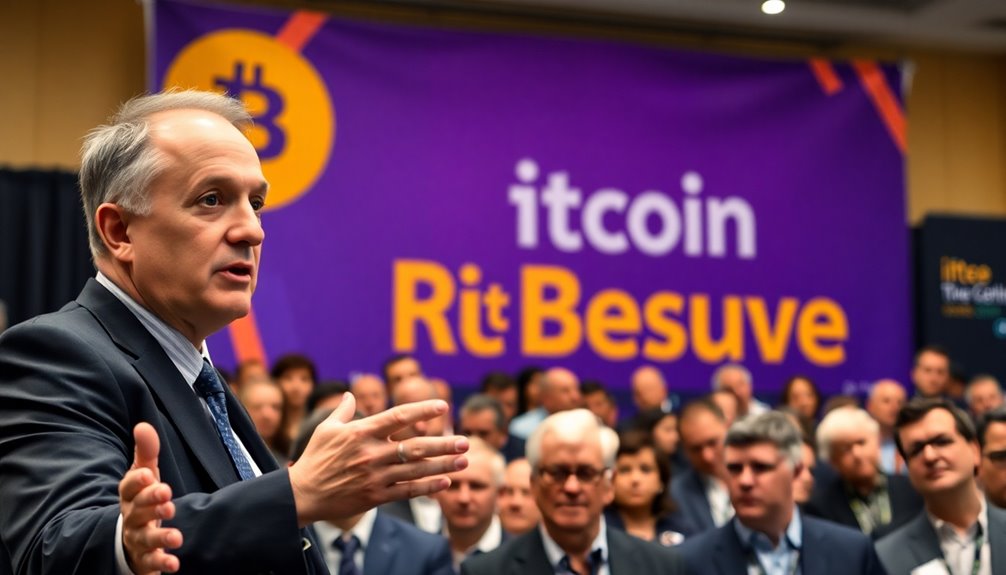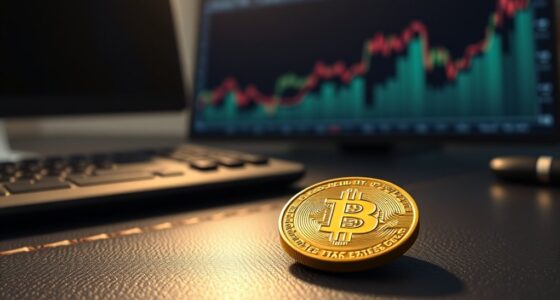You might find Peter Schiff's recent comments on Bitcoin quite compelling. He argues that promoting Bitcoin as a reserve asset is not just misguided but potentially fraudulent. Schiff raises important concerns about its volatility and the risks it poses to economic stability. As the debate heats up, you may wonder what implications this has for the future of digital currencies and the broader financial landscape.

Though initially misinterpreted as support for a Bitcoin reserve, Peter Schiff quickly clarified his position, firmly rejecting the idea and criticizing Bitcoin promoters for what he sees as fraudulent marketing tactics. Schiff's comments were twisted by Bitcoin enthusiasts who took his acknowledgment of Bitcoin as "digital gold" to imply he endorsed it as a reserve asset. However, Schiff didn't mince words; he denounced the concept, arguing that Bitcoin's volatility and liquidity risks make it unsuitable for any financial reserve.
Schiff's main contention lies in his belief that Bitcoin's unpredictable price swings could compromise economic stability. He stresses that using Bitcoin as a reserve could lead to a cycle of government purchases followed by drastic price fluctuations, an unsustainable model that could destabilize the financial system. He doesn't shy away from emphasizing the dangers of dollar devaluation that could result from a Bitcoin reserve, stirring debates on the implications of such a move. Recently, Schiff has also accused Bitcoin pumpers of spreading misinformation to manipulate BTC prices.
Moreover, Schiff's criticism extends beyond Bitcoin itself; he's particularly vocal about the inclusion of XRP in any reserve. He argues that XRP serves a different purpose and doesn't belong in the same conversation as Bitcoin when discussing reserve assets. This stance has fueled further discussions within the cryptocurrency community, particularly among XRP supporters who defend its transaction efficiency and potential.
The reaction to Schiff's initial comments was swift, with Bitcoin prices spiking as many interpreted his words as a sign of validation. Yet, once he clarified his stance, the market felt the shift in sentiment. His criticisms have sparked significant debate, challenging the legitimacy of Bitcoin as a viable reserve asset. The cryptocurrency market is already sensitive to shifts in perception, and Schiff's strong words have added to that volatility.
Schiff's views are likely to influence regulatory discussions surrounding cryptocurrencies. His skepticism about a U.S. Bitcoin reserve has caught the attention of lawmakers, particularly in light of recent proposals, like Senator Cynthia Lummis' bill supporting such a reserve. Schiff's arguments against the economic risks associated with Bitcoin could play a crucial role in shaping policy decisions.









